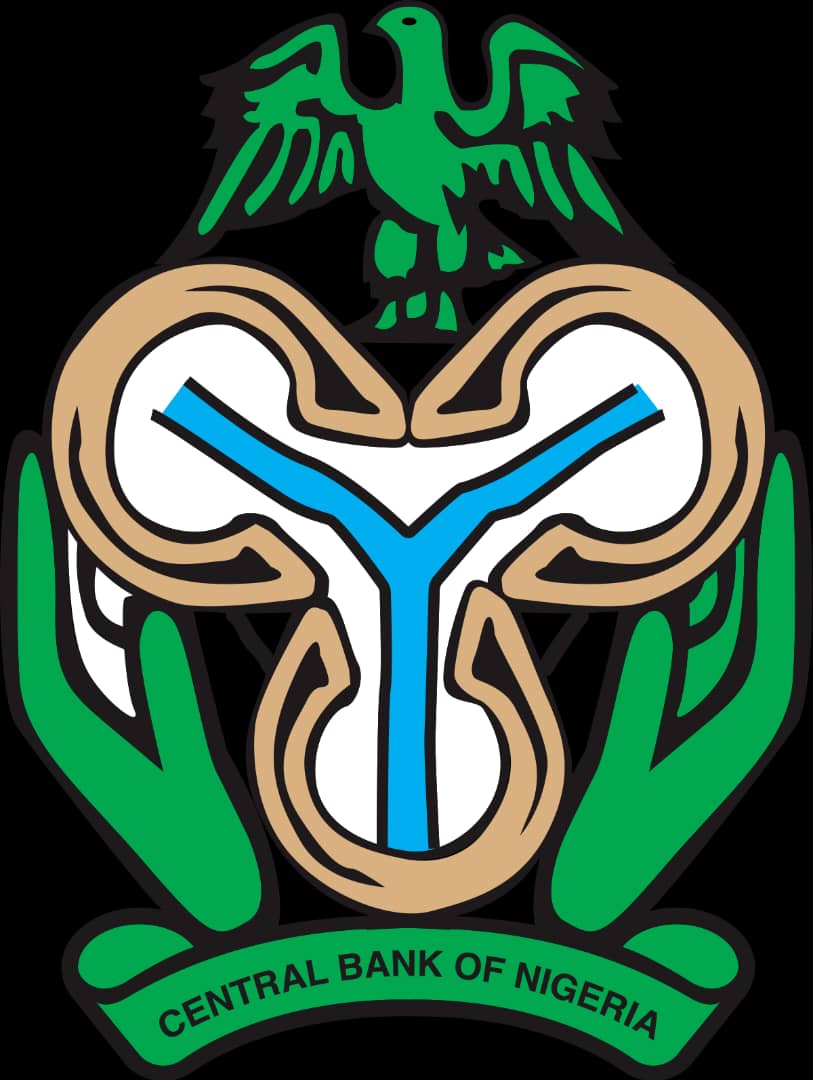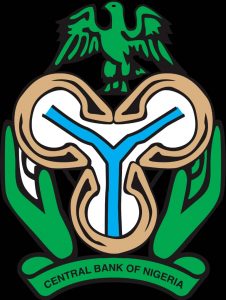Business
(Investigation) CBN Intervention Funds: Controversy as Keystone Bank Asks Participants to Pay Full Commercial Loan Rate on Performing Intervention Facilities

*(Investigation) CBN Intervention Funds: Controversy as Keystone Bank Asks Participants to Pay Full Commercial Loan Rate on Performing Intervention Facilities*
*… Banks Indict CBN*
*.. Apex Bank Fail to Respond*
Recall that in 2020 immediately after Covid-19, the apex bank of Nigeria (CBN) swung into action by introducing a special pricing offer on the existing CIFI (Creative Industry Financing Initiative) loans. In addition to this, they injected N100bn into the economy that was disbursed through the Intervention Fund Scheme for Health Sector businesses among others.
The choice of health sector for the intervention was deliberate in 2020 following the realities and the need to strengthen the health sector after the covid-19 incident and the over dependence on imported drugs. The intervention was meant for those that play in the creative space and health sector including other manufacturing sectors and designed by CBN to cushion the impacts of Covid-19 and specifically focused on domestic manufacturing support.
Based on investigation carried out by team of well trained investigative journalists under the Nigeria Guild Of Investigative Journalists (NGIJ), we learnt that businesses in these sectors are meant to enjoy interest rate of 5% at the initial period (one year subject to extension by CBN) and there after which it reverts to 9% for the duration of the facility not exceeding 10yrs in total. Other beneficiaries in the scheme are Fashion/textile, Software Developers, Healthcare Manufacturers, Healthcare Service Providers, Healthcare Value Chain Players, etc.
However, it became a serious matter when a commercial bank, specifically KEYSTONE decided to unilaterally increase the intervention facility rate from 9% to 24% on performing customers without the knowledge or consent of CBN or without regards to the attendant effect on the businesses at this time. , The guild obtained initial information (Keystone letter to several customers dated September 20th and titled “ *NOTICE OF INTEREST RATE REVIEW* ”, which led to the full investigation.
The letter referenced ‘CBN review of ‘Cash Reserve Ratio Policy and other monetary policies’ as a basis for rate change but did not reference any directive or published circular rescinding the policy rate.
During the course of our investigation, we realized that Keystone has already started charging the increased rate by directly deducting interest at its new rate from the customers without consent.
During our investigation, we spoke to the managing director of Keystone bank, Olaniran Olayinka. who confirmed the rate change by the bank but could not provide any support of a CBN directive to that effect. The core of his argument is that the funds belong to the bank.
He noted that CBN never came to their aid when they needed support but instead has increased the cash reserve requirement from 27.5% to 32%.
He further noted that tier one banks did not participate in the intervention, but the small banks did.
A quick investigation showed that the big banks, UBA, FBN, Zenith, Access, Fidelity etc were big participants in the sector specific DCRR intervention program and all currently are adhering to the policy guidelines for such.
Not satisfied with the response, we went further to speak with another bank official who revealed to us that the newly appointed CBN Governor Mr Olayemi Cardoso has announced that the Apex will no longer get involved in any intervention funds, he said . He however did not confirm that CBN is reversing existing intervention rates while they are still performing without default.
According to the new governor of the apex bank, the bank needs to move into a limited advisory role that supports economic growth rather than actively play a prominent role in the financing of these projects. There is nothing in this statement or others we are aware of that indicates that CBN will change, or cancel its existing interventions. If that is the case, then a circular should be issued to that effect but it has not done so. The CBN statement is generally understood to mean more focus on monetary policy and less or away from fiscal policies or interventions that should be left for the relevant agencies and ministries such as Bank of Industry, Bank of Agriculture etc.
He emphasized the need to restore the apex bank’s independence and credibility by refocusing on its core mandate and ensuring a culture of compliance.
The core question which is for CBN to answer is whether a bank can unilaterally change intervention policy rates on existing facilities on non-defaulting customers without recourse to the regulator.
The challenge is a policy consistency challenge that does nothing but erode public and investor confidence.
The silence from CBN has done nothing but exacerbate the challenge or at minimum embolden unscrupulous bankers to the detriment of customers and public confidence.
Our journalist attempted to speak with the central bank director in charge when the Intervention was initiated Mr Yila Yusuf but Yila referred us to another director (Dr Musa) noting that he is no longer in charge and he can’t speak on it .
When we spoke with Dr Musa, he turned us down and referred us to the CBN, Head of Corporate Communications who is incommunicado since about two weeks till now. From the feelers around the CBN confirmed that the Mr Olayemi Cardoso is not interested in running an interventionist economic policy which has manifested in President Bola Ahmed Tinubu-led administration and removal of fuel subsidy.
It is on this note that we are calling on the CBN governor Mr Olayemi Cardoso to come out and clarify to the public and beneficiaries the real situation of things because the companies involved are seriously concerned due to the sudden change in the policy rate.
Some of these participants invested in these entities along with foreign partners that relied on the intervention facilties and employ thousands of Nigeria across all regions.
The biggest challenge to investing in Nigeria is policy inconsistencies. It is hard to reconcile why a bank will reverse a CBN policy rate without recourse to CBN directive which is generally always published.
The challenge with not addressing this is that other banks will take this cue that CBN has approved or authorized the rate change and will follow suit.
Such arbitrariness ultimately leads to lack of investor and public confidence, potential defaults and ultimately lay off of those that were employed when these entities invested.
The Apex bank needs to do something as a matter of urgency to clarify what the policy is on existing intervention facilities for the entire banks and borrowers – it cannot be a cowboy country where there are no rules.
The country, not only investors suffers where there is an appearance of lack of policy consistency.
Business
Nigeria’s Inflation Drops to 15.10% as NBS Reports Deflationary Trend

Nigeria’s headline inflation rate declined to 15.10 per cent in January 2026, marking a significant drop from 27.61 per cent recorded in January 2025, according to the latest Consumer Price Index (CPI) report released by the National Bureau of Statistics.
The report also showed that month-on-month inflation recorded a deflationary trend of –2.88 per cent, representing a 3.42 percentage-point decrease compared to December 2025. Analysts say the development signals easing price pressures across key sectors of the economy.
Food inflation stood at 8.89 per cent year-on-year, down from 29.63 per cent in January 2025. On a month-on-month basis, food prices declined by 6.02 per cent, reflecting lower costs in several staple commodities.
The data suggests a sustained downward trajectory in inflation over the past 12 months, pointing to improving macroeconomic stability.
The administration of President Bola Ahmed Tinubu has consistently attributed recent economic adjustments to ongoing fiscal and monetary reforms aimed at stabilising prices, boosting agricultural output, and strengthening domestic supply chains.
Economic analysts note that while the latest figures indicate progress, sustaining the downward trend will depend on continued policy discipline, exchange rate stability, and improvements in food production and distribution.
The January report provides one of the clearest indications yet that inflationary pressures, which surged in early 2025, may be moderating.
Bank
Alpha Morgan to Host 19th Economic Review Webinar

Alpha Morgan to Host 19th Economic Review Webinar
In an economy shaped by constant shifts, the edge often belongs to those with the right information.
On Wednesday, February 25, 2026, Alpha Morgan Bank will host the 19th edition of its Economic Review Webinar, a high-level thought leadership session designed to equip businesses, investors, and individuals with timely financial and economic insight.
The session, which will hold live on Zoom at 10:00am WAT and will feature economist Bismarck Rewane, who will examine the key signals influencing Nigeria’s economic direction in 2026, including policy trends, market movements, and global developments shaping the local landscape.
With a consistent track record of delivering clarity in uncertain times, the Alpha Morgan Economic Review continues to provide practical context for decision-making in a dynamic environment.
Registration for the 19th Alpha Morgan Economic Review is free and can be completed via https://bit.ly/registeramerseries19
It is a bi-monthly platform that is open to the public and is held virtually.
Visit www.alphamorganbank to know more.
Business
GTBank Launches Quick Airtime Loan at 2.95%

GTBank Launches Quick Airtime Loan at 2.95%
Guaranty Trust Bank Ltd (GTBank), the flagship banking franchise of GTCO Plc, Africa’s leading financial services group, today announced the launch of Quick Airtime Loan, an innovative digital solution that gives customers instant access to airtime when they run out of call credit and have limited funds in their bank accounts, ensuring customers can stay connected when it matters most.
In today’s always-on world, running out of airtime is more than a minor inconvenience. It can mean missed opportunities, disrupted plans, and lost connections, often at the very moment when funds are tight, and options are limited. Quick Airtime Loan was created to solve this problem, offering customers instant access to airtime on credit, directly from their bank. With Quick Airtime Loan, eligible GTBank customers can access from ₦100 and up to ₦10,000 by dialing *737*90#. Available across all major mobile networks in Nigeria, the service will soon expand to include data loans, further strengthening its proposition as a reliable on-demand platform.
For years, the airtime credit market has been dominated by Telcos, where charges for this service are at 15%. GTBank is now changing the narrative by offering a customer-centric, bank-led digital alternative priced at 2.95%. Built on transparency, convenience and affordability, Quick Airtime Loan has the potential to broaden access to airtime, deliver meaningful cost savings for millions of Nigerians, and redefine how financial services show up in everyday life, not just in banking moments.
Commenting on the product launch, Miriam Olusanya, Managing Director of Guaranty Trust Bank Ltd, said: “Quick Airtime Loan reflects GTBank’s continued focus on delivering digital solutions that are relevant, accessible, and built around real customer needs. The solution underscores the power of a connected financial ecosystem, combining GTBank’s digital reach and lending expertise with the capabilities of HabariPay to deliver a smooth, end-to-end experience. By leveraging unique strengths across the Group, we are able to accelerate innovation, strengthen execution, and deliver a more integrated customer experience across all our service channels.”
Importantly, Quick Airtime Loan highlights GTCO’s evolution as a fully diversified financial services group. Leveraging HabariPay’s Squad, the solution reinforces the Group’s ecosystem proposition by bringing together banking, payment technology, and digital channels to deliver intuitive, one-stop experiences for customers.
With this new product launch, Guaranty Trust Bank is extending its legacy of pioneering digital-first solutions that have redefined customer access to financial services across the industry, building on the proven strength of its widely adopted QuickCredit offering and the convenience of the Bank’s iconic *737# USSD Banking platform.
About Guaranty Trust Bank
Guaranty Trust Bank (GTBank) is the flagship banking franchise of GTCO Plc, a leading financial services group with a strong presence across Africa and the United Kingdom. The Bank is widely recognized for its leadership in digital banking, customer experience, and innovative financial solutions that deliver value to individuals, businesses, and communities.
About HabariPay
HabariPay is the payments fintech subsidiary of GTCO Plc, focused on enabling fast, secure, and accessible digital payments for individuals and businesses. By integrating payments and digital technology, HabariPay supports innovative services that make everyday financial interactions simpler and more seamless.
Enquiries:
GTCO
Group Corporate Communication
[email protected]
+234-1-2715227
www.gtcoplc.com
-

 celebrity radar - gossips6 months ago
celebrity radar - gossips6 months agoWhy Babangida’s Hilltop Home Became Nigeria’s Political “Mecca”
-

 society6 months ago
society6 months agoPower is a Loan, Not a Possession: The Sacred Duty of Planting People
-

 society5 months ago
society5 months agoReligion: Africa’s Oldest Weapon of Enslavement and the Forgotten Truth
-

 news6 months ago
news6 months agoTHE APPOINTMENT OF WASIU AYINDE BY THE FEDERAL GOVERNMENT AS AN AMBASSADOR SOUNDS EMBARRASSING










